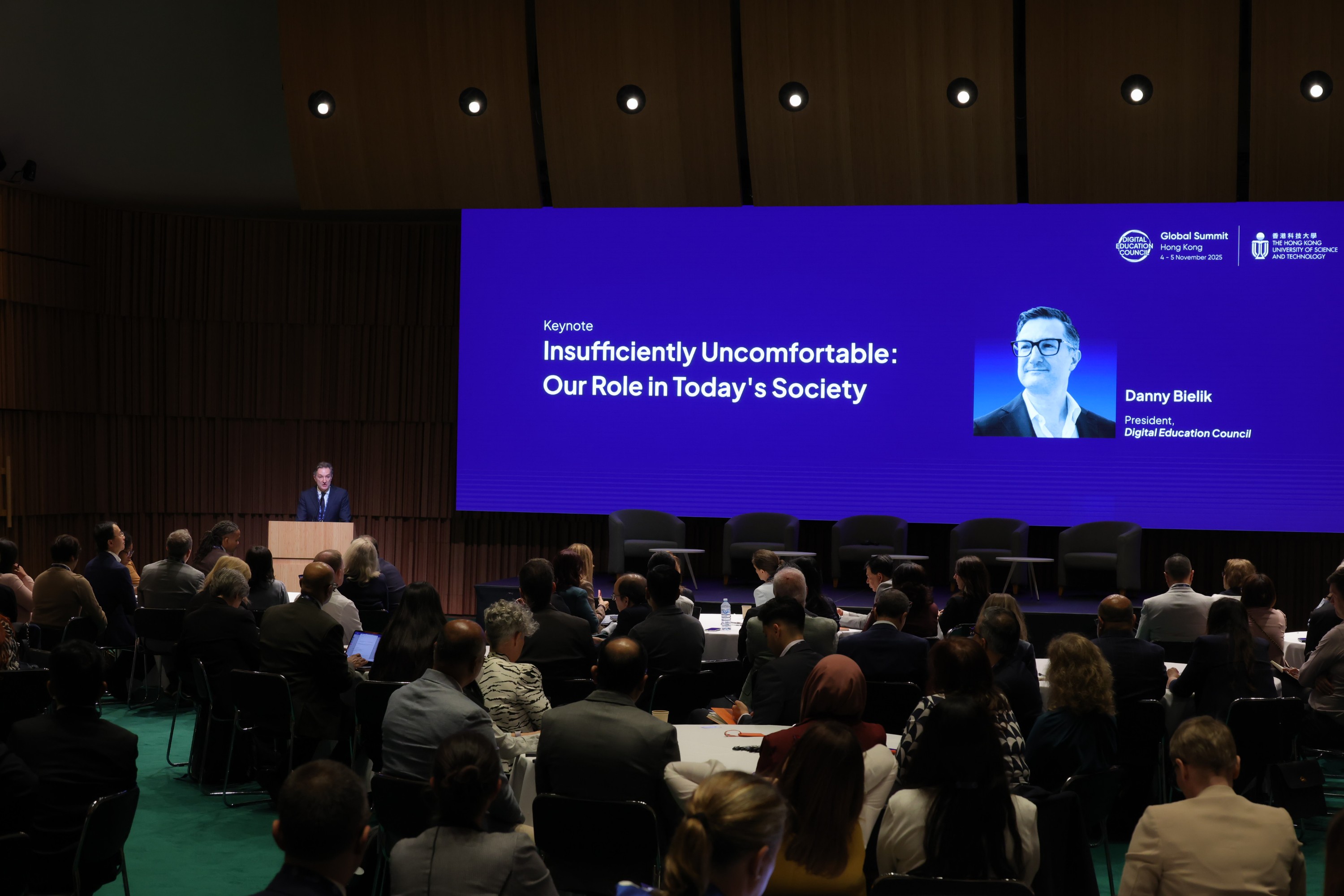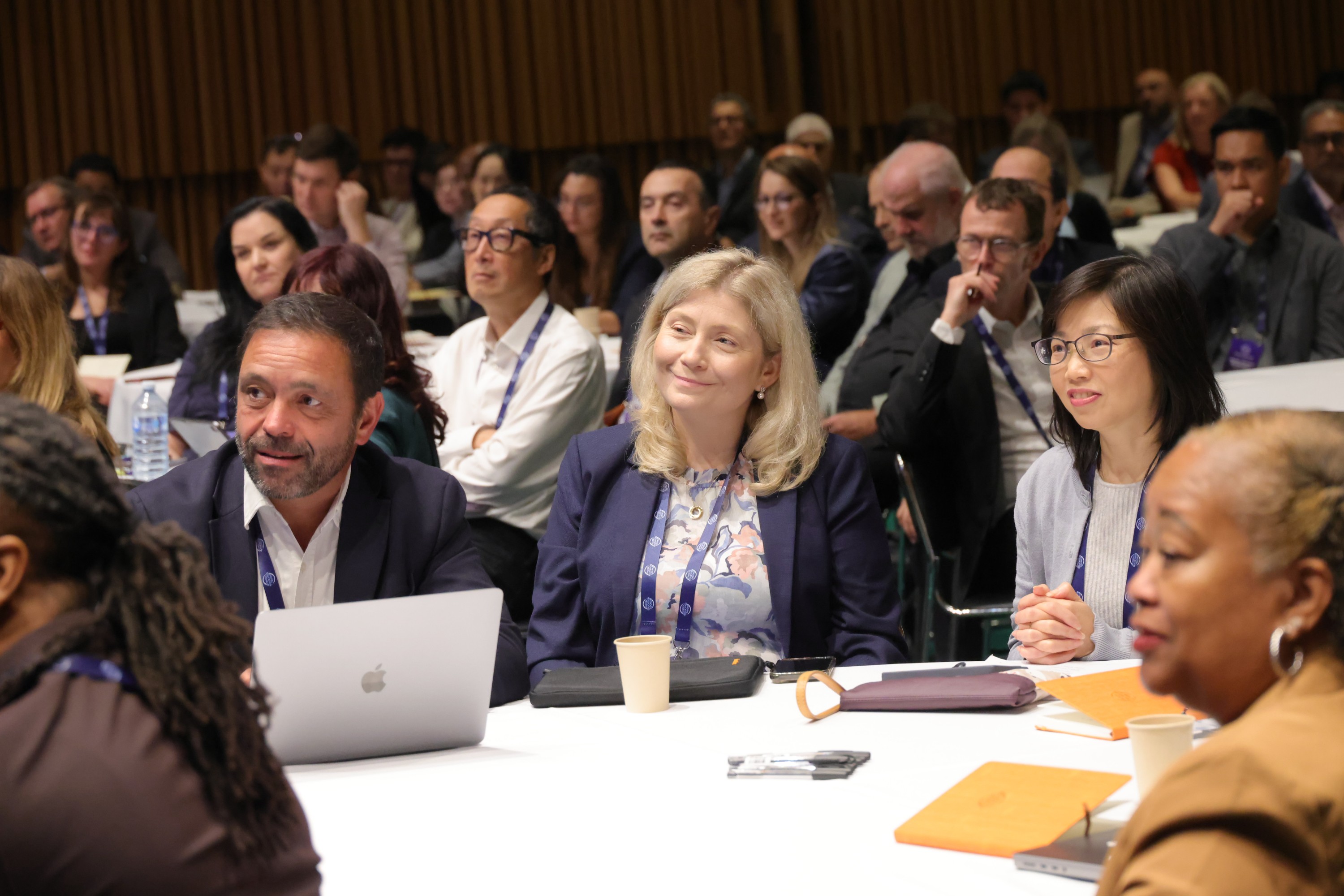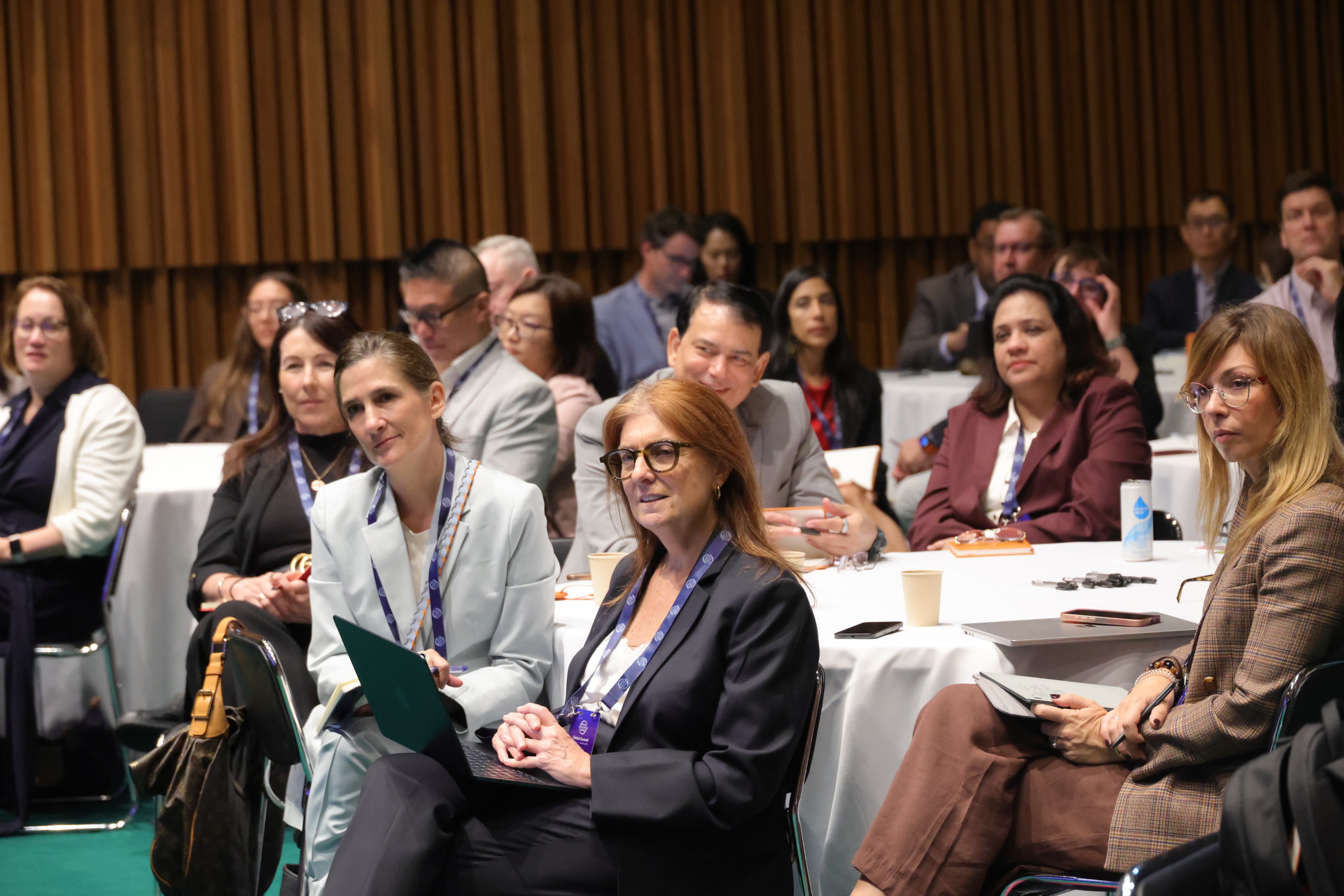By Digital Education Council
November 14, 2025
[This is a transcript of the opening speech delivered by Digital Education Council President, Mr. Danny Bielik at the Global Summit on 4 November 2025 at HKUST in Hong Kong]

Welcome to the second DEC Global Summit. Thank you for making the trip here.
Thank you to Hong Kong University of Science and Technology for being a founding member and our host for this Summit.
Welcome to the leaders who represent 82 member institutions from 25 countries around the world.
When we last met in Singapore most universities were only beginning to grapple with AI. Many institutions were banning it and many were trialling AI detectors.
Meanwhile, 86% of students were already using it.
That came as a shock when we released that data. Today, it seems conservative.
Unlike for other industries, for higher education AI is not experimental - it is fundamentally reshaping our day-to-day reality.
This comes at a time when trust in higher education is coming under strain - this is happening around the world. In many countries, UK, US, Canada, Australia public funding is under growing pressure and governments are moving to limit international student growth.
In The Netherlands, the government proposed to make Dutch the default language of delivery.
These are signals and they are not a coincidence. They reflect deeper pressures.
Geopolitical fractures and rapidly changing demographics, a shift to a skills-based workforce, challenger models to traditional higher education and a community that questions the value of a degree or qualification.

Our industry has seen technological shifts before. The printing press upended how we shared knowledge; the internet dismantled our monopoly on it; and now, artificial intelligence is redefining cognition, analysis, creativity and memory.
But rapid technology advancement has really focussed the mind for higher education leadership - most notably AI.
Education is the first industry to be wholly disrupted by AI.
AI can potentially conduct our core functions - teaching, assessment and research - at scale.
That’s not assistance. It’s substitution.
So, what exactly do universities and colleges tell us they are focussed on today?
Let’s list some of the issues they talk to us about:
All of this sits in within the context of global workforce transformation.
Conservative estimates say that around 40% of all jobs globally may be materially transformed by AI.
We also know from our AI in the Workplace report that 72% of employers believe that AI adoption will result in reduced headcount.
We are already seeing erosion in early-career opportunities in markets like the U.S. and Singapore.
The first rung of the career ladder is being hollowed out.
.jpg)
This is believable. We can already see some of the effects in the marketplace.
Earlier this year, I took a ride in a Waymo - an Uber with no driver.
(Actually, I’m quietly addicted, I took more than one.)
Two weeks ago at Fudan University in Shanghai I was greeted by a dancing robot. It dances better than me.
In Los Angeles, I dodged delivery drones that silently deliver bubble tea around the downtown area.
And think about scale and speed. What will autonomous vehicles do to the relationship you have with your own vehicle when someone invests in a million of them in the city you live in?
If autonomous systems reshape transport and logistics, what happens when AI reshapes legal, research, accounting, design, medicine, and education itself?
I was chatting the other day with Alessandro about how we might try to explain to our grandkids how we were once allowed to drive our own cars - fallible, easily distracted humans inside 2 tonnes of metal driving towards each other at 100km/h.
Humans are notoriously bad predictors of the future. When the first Model T rolled off the line we couldn’t predict that the car would give us suburbs and the supermarket.
What will this round of intelligence automation give us?
When the tractor was invented more than ⅓ of Americans were employed in agriculture. People saw it as a curiosity, smelly, noisy, smoky. What could this do that they couldn’t with their generations of farming with horses and oxen?
100+ years later the majority of people in developed countries live in the city and the vast majority of those jobs that revolved around farming are gone.
Whilst life is better today by most measurements than 100 years ago, we must remember that for the farmhand whose job evaporated - he had a very very bad day.
This time, if 40+% of jobs are going to be substantively transformed over the next 5-10 years, who will help millions of people repurpose and reskill?
Shall we put up our hand and say to our policymakers, our regulators, our employers, high school students and parents - shall we say “trust us, we’re here to help”?
A microcredential here and a stacked qualification there should do the trick.
Empirical evidence would lead us to believe that we might have a difficult time convincing people that we are fit for this purpose.
Last year, at our 2024 Summit, Ivan Bofarull who we will hear from later told us that our industry is “Insufficiently Uncomfortable”. That was a year ago.

Did we help our faculties and teachers and researchers understand that whilst we respect their domain knowledge expertise, that teaching, learning and assessment is also an expertise and that role has fundamentally changed.
Are we preparing our systems, our campuses, our offerings to double or triple the number of people we can admit so we can help our societies adapt?
Are we working with our academic senates and regulators to ensure that we can have curriculum that is more flexible and adaptable to rapid change?
Are we working more closely and effectively with industry to understand their changing needs and move to help them, at scale?
Are we talking with our communities to help them understand that we are making changes to assessment that give them comfort that our qualifications retain meaning and relevance?
Are we talking collaboratively with governments and funders about how we are ready to be the central pivot point around which this transition can reliably and affordably occur?
If we aren’t then we are insufficiently uncomfortable and insufficiently prepared.
But, our purpose here is not to look to the past. It’s to build the shape of higher education for the next generation.
As the first industry to be disrupted we must take big steps. We need to address the change that’s happening to our industry, for sure, but we must also take our place in the society that is emerging.
So, yes we need to think about copyright, admission bias, academic integrity, AI literacy - we must also deal with the bigger picture. What does the university or college of tomorrow look like and what role will it play in this substantial economic transformation?
Let’s work with purpose on the premise that we want to take a leadership position in this moment. We don’t have to be net recipients of what’s going on around us, we can and should help shape it.
These next two days should be the most important conversations in higher education.
Today, we have licences, legitimacy, funding mechanisms and connections to industry. We have physical and digital infrastructure, classrooms, labs and dorms.
And we really have faculty, administrators and leaders who care deeply.
We have everything we need to give us a substantial advantage over potential disruptors.
And today we have the Digital Education Council.
During this Summit, I urge you to think big.
The Summit is confidential and we use the Chatham House Rule for a reason - this wonderful building is a safe place to have these conversations.
Our theme for this Summit is “When Change is the Only Constant”. We have very deliberately written an agenda and invited speakers to help us challenge the narrative that we are not fit for purpose, that we won’t help our societies meet the future, that we are losing our social licence.
We have written this agenda to ensure you can think big and consider what changes you will make once you leave here in a couple of days time. What things will you do differently when you return home?
We deliberately designed the things that we do at the Council to be different. We are unashamedly practical and unashamedly outcome-focussed.
We have much to do in these next two days and in the year to come you will see some of the big initiatives that we will undertake with, for and on behalf of our members around the world to support you.
Let’s work for the next two days as if we are shaping the future of education for billions.
Because if we aren’t, then who is?